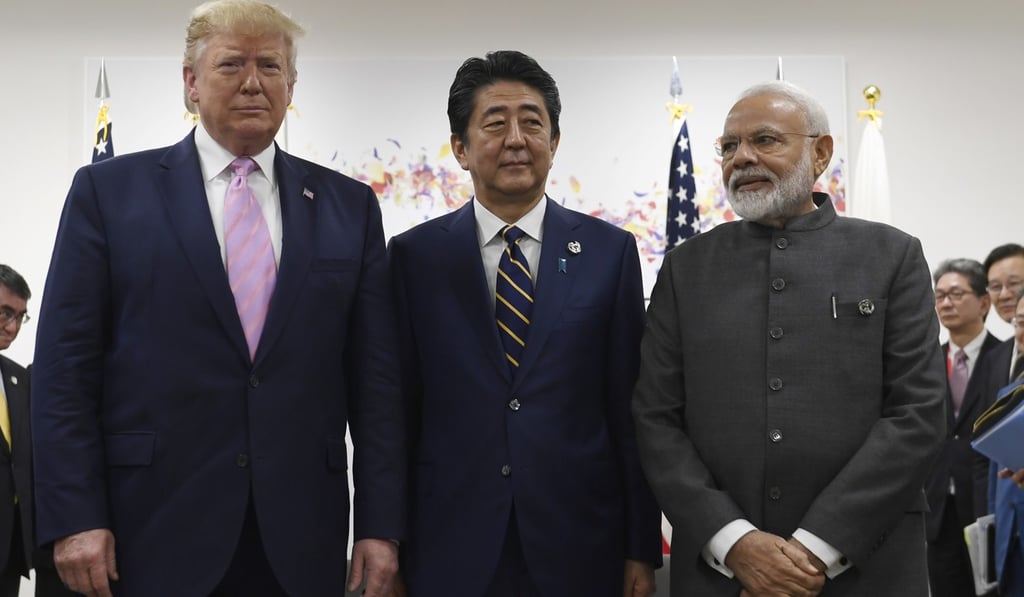Advertisement
Asian Angle | Not the US, not China. India holds the cards in the Indo-Pacific
- India has ties with all the major regional players and the heft to alter the balance of power, if it so wished
- But a long tradition of ‘strategic autonomy’ is likely to see the status quo maintained, unless Beijing provokes change
Reading Time:3 minutes
Why you can trust SCMP
0

At last month’s G20 summit in Osaka, India once again took part in two trilateral meetings – one with Japan and the United States, the other with China and Russia.
The first focused on “how the three countries can work together towards an open, stable and rule-based Indo-Pacific region”, according to India’s External Affairs Ministry. The latter, meanwhile, provided an important opportunity for “the world’s leading economies [to have an] exchange of views … on the economic, political and security situation of the world”, according to Indian Prime Minister Narendra Modi.

The two meetings reflect how India, with its growing economic and military heft, wields a measure of strategic influence in an Indo-Pacific region that is in flux.
In the recent past, the US has looked to counterbalance China’s rising influence in the region. But President Donald Trump’s unpredictability and diplomatic moves with North Korean strongman Kim Jong-un have upset the calculations of the leaders of China, South Korea and America’s closest ally in the region, Japan. This also extends to India, which is not sure how Trump will deal with China in the long-run.
India could well prove to be a “swing state” in these rapidly evolving diplomatic sweepstakes. As New Delhi’s economic and military muscle increases, it could either tilt the regional balance of power in favour of the US and its allies or choose to side with Russia and China – possibly creating a new multipolar order. India is also a major arms buyer and this is one card which it could play when dealing with countries like the US and Russia.
Advertisement
